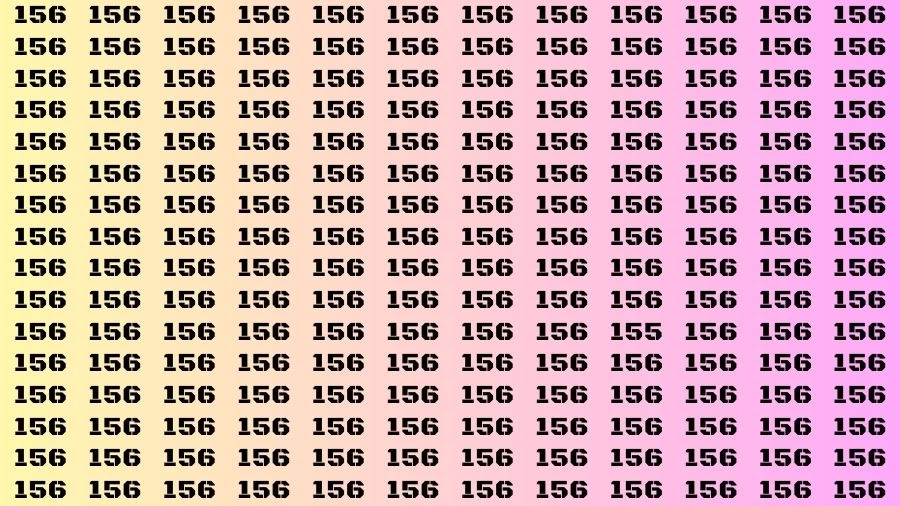If you are a keen observer, try to find Number 155 in this Optical Illusion. It’s time to test your eyes and know how good your perception is! Visit our Fresherslive website to unravel the secrets behind the wonders and Expand your knowledge, engage your senses and explore the fascinating world of visual perception at our Fresherslive website.
The science behind optical illusions
When you hear the word optical illusion, the first thing that may come to mind is its exact meaning. Optical illusions occur when you see something different from the reality of the object. There are many types of optical illusions. Literally optical illusions are usually created by aggregating multiple images together.
Physiological illusions cause someone to see parts of the image that aren’t really there. Cognitive illusions create optical illusions using a person’s assumptions about the world. This article also contains a unique optical illusion to test your vision. So let’s get started!
What are the different types of optical illusions?
Optical illusions are fascinating visual phenomena that trick our brain into perceiving something that isn’t really there or interpreting something differently from reality. Here are some different types of optical illusions:
Geometric illusions: These illusions use shapes and patterns to give the impression of depth, movement, or distortion.
Ambiguity Illusions: These illusions use images that can be interpreted in many ways, leading to confusion or uncertainty about what is actually being seen.
Color Illusions: These illusions use color and light to give the impression of movement, depth, or contrast.
Motion Illusions: These illusions give the impression of motion or movement in a still image.
Tactile Illusions: These illusions use touch and texture to give the impression of depth, shape, or movement.
Perceptual Illusions: These illusions create an impression of a different size, shape, or color than what is actually there.
Flashing Illusions: These illusions give the impression of movement or change through rapidly flashing images or colors.
Afterimage illusions: These illusions give the impression of an image or color that remains in vision after it has been removed.
Optical illusions can be found in various forms of media, including art, advertising, and entertainment. They are a fascinating way to explore the workings of the brain and perception.
No. 155 Optical Illusion
Everything is an illusion. Right? Your eyes are amazing organs. They work in constant sync with your brain and that’s why you see the world the way you do. But, sometimes, your eyes can lie to you. Your brain controls your entire nervous system. Sometimes, however, your eyes can trick your brain into seeing things that aren’t what they seem.
Now, let’s dive into our Number 155 optical illusion. Test your IQ by finding the number 155 in this optical illusion. Observing optical illusions is a great way to train your mind to see beyond the ordinary and think outside the box.
Optical illusions help improve your perception and observation skills. This is a fun optical illusion to try to help improve your skills. And yes, you are a good observer if you find Number 155 in this optical illusion. Take a look at the image given below. What do you see? Can you find Number 155 in the picture below?
Assuming you’ve found Number 155, Hooray! You have a great perception of seeing things, and of course, you are a good observer. If you can’t find it, no problem. We are here to help you as we have provided the solution image below.
Where is the number 155 in this Optical Illusion?
This optical illusion may seem difficult, but with a little concentration you can find Number 155. Not many people can recognize Number 155 at first sight. In fact, it can take some time to understand the picture.
So here is solution image where you can see Number 155 in highlighted area. Is it interesting to uncover hidden things? There are many new and unique optical illusions. To try more like this optical illusion, check out our website!
Disclaimer: The above information is for general information purposes only. All information on the Website is provided in good faith, however we make no representations or warranties of any kind, express or implied, as to the accuracy, completeness, validity, reliability, availability or completeness of any information on the Website.
Let the article source Optical Illusion Brain Test: If you have Sharp Eyes Find the number 155 in 20 Secs of website nyse.edu.vn
Categories: Optical Illusion
